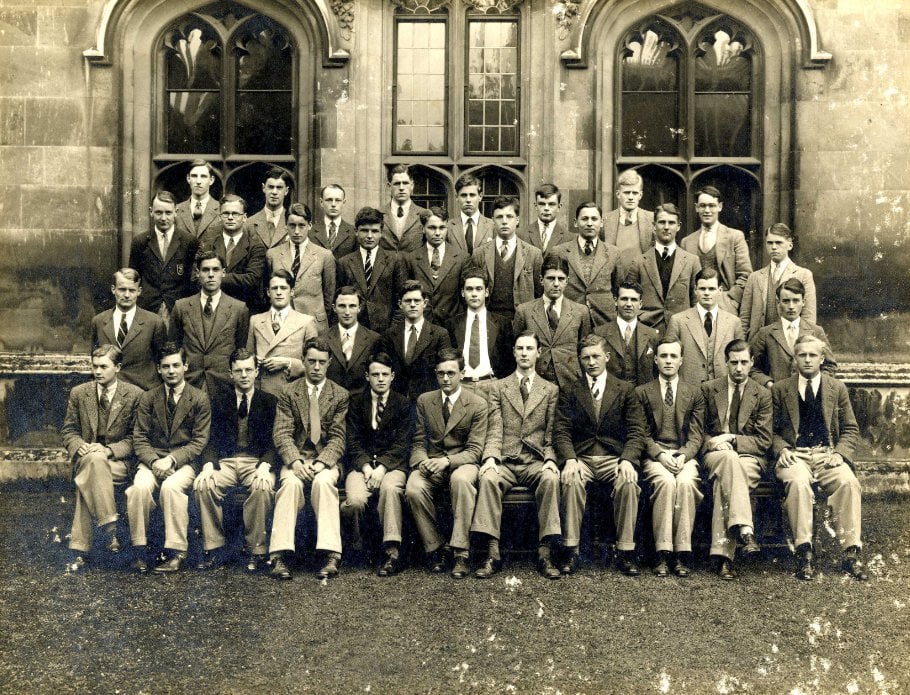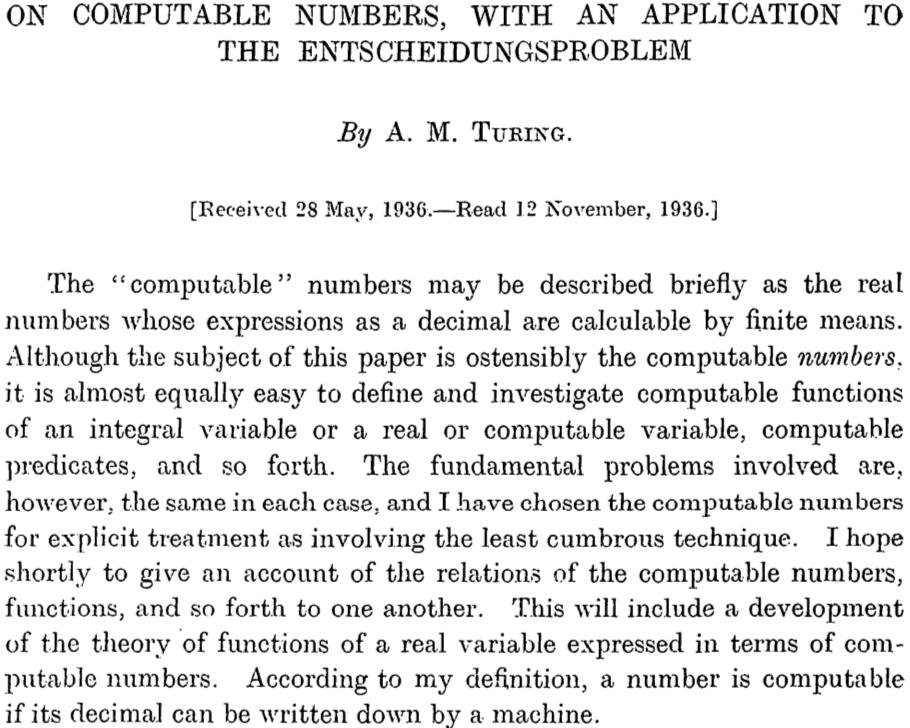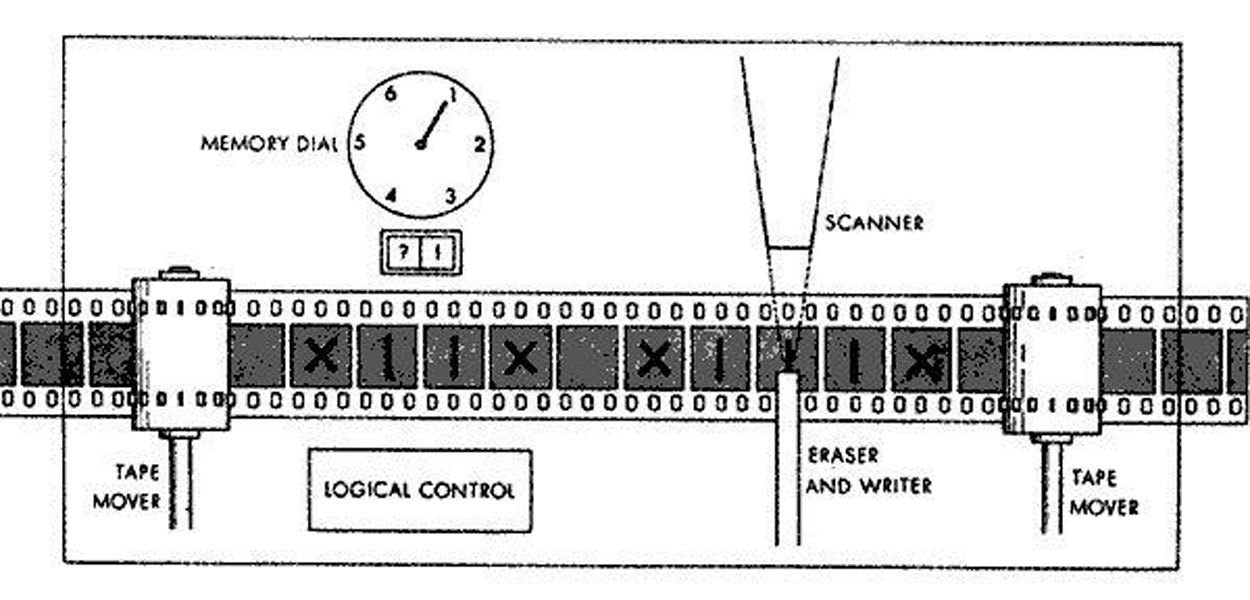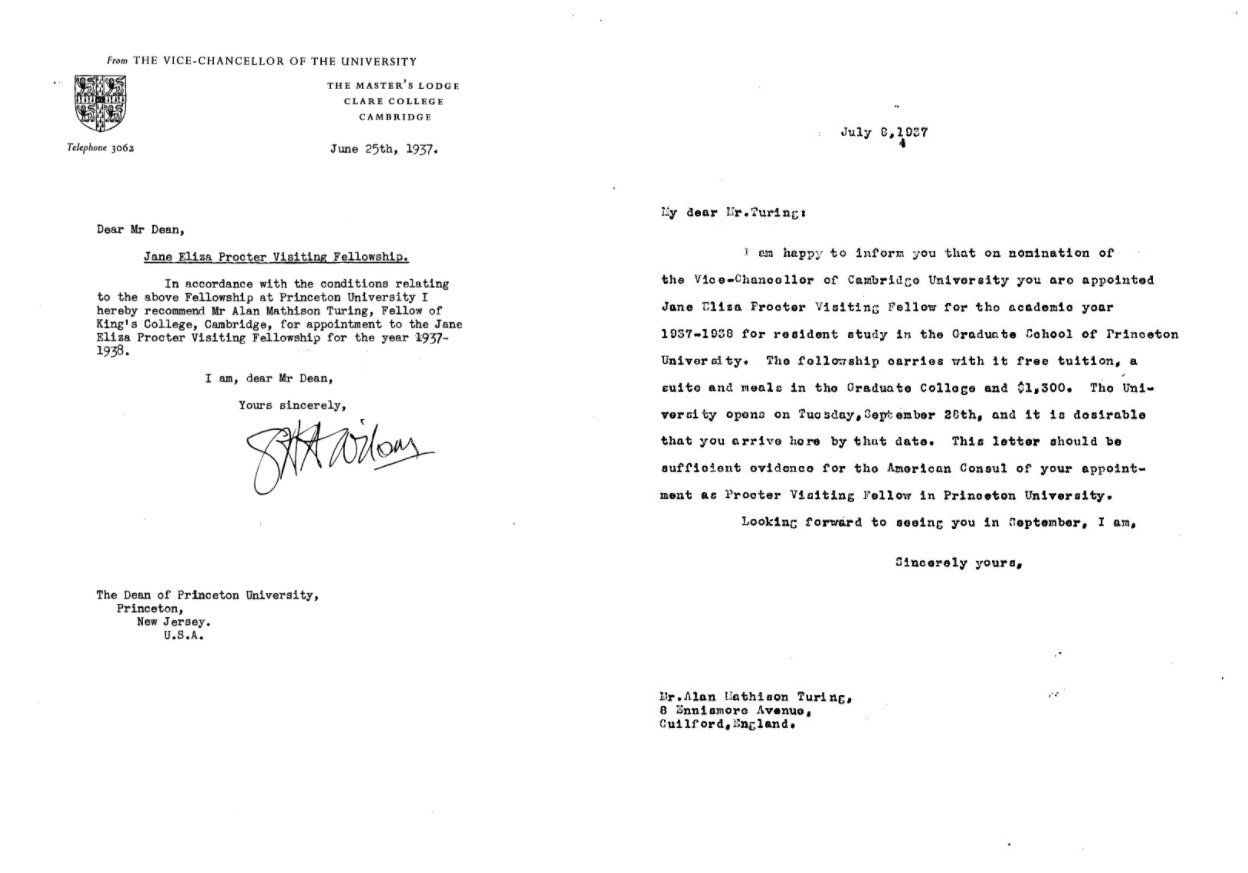
Turing at King's College, Smithsonian Magazine.
never forget
At King's College, Turing obtained first-class honors in mathematics and became a Fellow at 22.

Turing at King's College, Smithsonian Magazine.
"No other college was like this, and so Alan Turing gradually woke up to the fact that by chance he arrived in a unique environment which was as much his element as any institution could be. "
- Andrew Hodges, Alan Turing: The Enigma
In 1936, Turing published his masterpiece "On Computable Numbers, with an Application to the Entscheidungsproblem", an unprecedented paper crossing inconceivable frontiers in both mathematics and computing.

The Entscheidungsproblem is the question of whether there is a method or algorithm that can determine the truth or falsity of a logical statement.

Turing Machine 1936 depiction,
media+art+innovation.
Turing proposed the Turing machine, a theoretical device capable of performing any calculation, to prove that the "decision problem" was unsolvable.
"A man provided with paper, pencil, and rubber, and subject to strict discipline, is in effect a universal machine.
- Alan Turing, 1951
Turing completed his Ph.D at Princeton University in June 1938. His dissertation, "Systems of Logic Based on Ordinals" enabled the study of problems that Turing machines could not solve.
"The original question, 'Can machines think' I believe to be too meaningless to deserve discussion. Nevertheless I believe that at the end of the [20th] century the use of words and general educated opinion will have altered so much that one will be able to speak of machines thinking without expecting to be contradicted."
- Alan Turing, The Turing Digital Archive

Turing's paperwork regarding the Proctor Fellowship, Princeton University.
"...it is not altogether unreasonable to describe digital computers as brains...For any one calculation the whole procedure that the machine is to go through is planned out in advance by a mathematician. The less doubt there is about what is going to happen the better the mathematician is pleased...it is fair to say that the machine doesn't originate anything...If it is accepted that real brains, as found in animals, and in particular in men, are a sort of machine it will follow that our digital computer suitably programmed, will behave like a brain...I think it is probable for instance that at the end of the [20th] century it will be possible to programme a machine to answer questions in such a way that it will be extremely difficult to guess whether the answers are being given by a man or by the machine."
- Alan Turing, 1951 BBC Programme
Although this concluded his formal education, Turing went on to make many more groundbreaking discoveries and contributions.

Manchester Mark I, based on Turing's ideas, Encyclopedia Britannica.